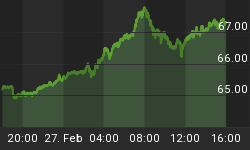As the IPO wave hits tsunami proportions, there has probably never been a more exciting time to get in on these offerings. Just thinking about the fact that Uber is worth billions and is still private is a mouth-watering prospect for potential investors.
And it’s about to get even more exciting, as we anxiously await what promises to be a series of IPOs coming out of Silicon Valley in the very near future.
Over the next 18 to 24 months, “investors, bankers and analysts [expect] a wave of initial public offerings to bring some of the most highly valued and recognizable start-ups to the public market…”, according to the New York Times.
We’re talking about billions of dollars in returns here as the market has waited for years as these darlings in the start-up world have amassed unprecedented valuations privately—like Uber and Airbnb.
Forbes counts 168 global unicorns, 95 of them in the U.S. that are still private but may be reconsidering an IPO option.
But before you dive headfirst into the IPO world, here are 5 things you should know:
#1 Companies Have Different Reasons for ‘Going Public’…
And it’s not to make you happy.
Either they’re issuing an IPO to raise capital to pay off debts, to fund growth initiatives, to raise their public profile or to allow company insiders to create liquidity (i.e. get paid off)—or all of the above. There’s certainly nothing altruistic about it.
For the potential investor coming into the wave of new expected IPOs, the trick will be to determine why the company is going public, and whether the timing is really ideal.
If these ranks of unicorns haven’t gone public yet, in many cases it’s simply because it’s a long and expensive process burdened by a ton of regulatory red tape. Sometimes, when there’s a lot of cash floating around, it’s easier just to stay private. Related: Will Blockchain Stocks Ever Bounce Back?
In this environment, if the best of the best unicorns opt for an IPO, there’s generally a good reason, and much of it lately has to do with branding opportunities: the ability to start handing out corporate material to investors. An IPO is like a megaphone for money. It also gives them more financing flexibility and the strength to grow further.
But to get to the good stuff, you have to get past the next hurdle, as an investor…
#2 Hype is a Killer
Got a shovel? If not, we recommend getting one quickly. Many IPOs are over-hyped, and expectations are too high going in. Look no further than the tech bubble of the late 1990s and early 2000s during which time losses mounted to a point where no one would want to touch an IPO for a while.
You have to really do your homework here to avoid something like the disastrous Snapchat IPO. As Business Insider so poignantly put it: Snap is Where Hype and Money Go To Die. The hype on this one reached epic proportions, and everyone ate it up.
The day after Snap launched its IPO in March 2017, shares hit $29.30, rendering the social media icon a $30-billion market capitalization even though it was losing money in the billions and compensating its founders in the billions, too.
Sometimes it’s best just to wait out the hype and jump in when things look normal. And everyone who was too quick to buy into the overvalued offering probably wishes they would have waited.
But the next round of IPOs will be looking to avoid the Snap Trap. Today’s market isn’t keen on overvaluation, as the recent correction clearly demonstrates.
#3 Investing in an IPO is Different Than Buying Regular Stocks
The main reason for investing in an IPO is to get in on something big in the early days—something that has great growth potential. But it’s not the same as investing in regular stocks on the market.
The offering price put forward ahead of the IPO is only for a limited group of investors (big investors, employees, insiders). The average investor who doesn’t have enough assets to be credited isn’t going to make the cut. Related: Investors Bullish As Earnings Season Kicks Off
For investors with assets, participating in an IPO means agreeing to purchase shares at the offering price before it starts trading on the secondary market. And brokers expect you to hang on to these shares for a while; otherwise they’ll accuse you of “flipping”, and bar you from participating in other IPOs in the future.
That’s why when most people say they’re investing in an IPO they mean they are buying the stock only after it’s begun trading on the open market. And pricing is volatile. The opening price is a reflection of the demand for the stock on the day it debuts and could be wildly different than the ‘offering price’.
#4 You Can Wait for the Lock-Up
There’s also a lock-up period of 90-180 days during which shares held by insiders cannot be sold. Once the lock-up is over, those shares can go on the market and tend to add a fair amount of one-day volatility that makes for some good deals.
#5 FOMO is Dangerous
You don’t have to rush into an IPO. Just because you didn’t get in on it for the offering price, doesn’t mean there’s not money to be made. Don’t jump in on an IPO just out of the Fear of Missing Out (FOMO). There are tons of IPOs (over 8,000 since 1980), and over 70 percent of them end up trading below their initial offering price the following year.
By Josh Owens for Safehaven.com
More Top Reads From Safehaven.com:
















